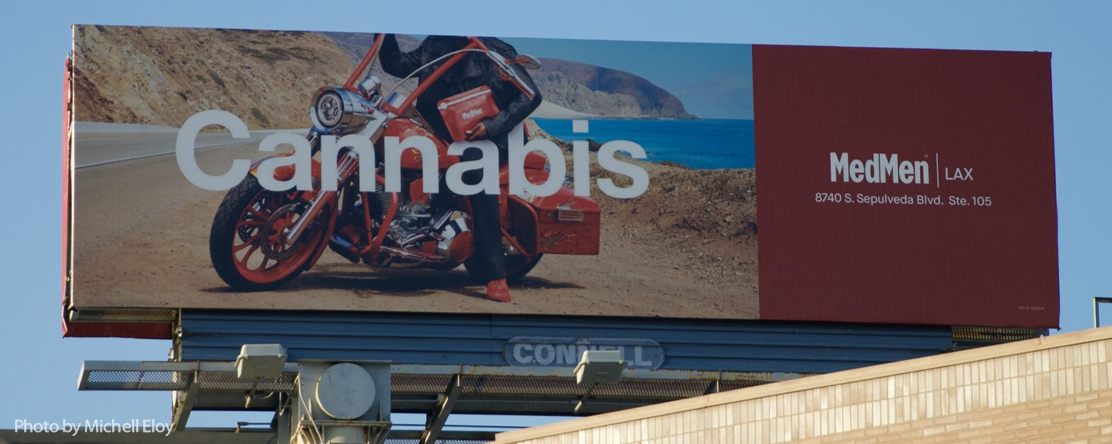
In the News
Now that Recreational Marijuana is Legal, What Should Advertising Look Like?

Use of recreational marijuana is now legal in California along with a small number of other states. It is still illegal at the federal level, however, so most TV and radio ads are out of the question, and Facebook and Google don’t allow ads either. That means cannabis companies are focusing their advertising locally—primarily turning to magazines, newspapers, podcasts and billboards to promote their businesses, according to this article and radio segment from KCRW in Los Angeles.
The state of California and some city governments have moved to further limit the cannabis industry’s marketing opportunities. A new law in L.A., for instance, requires cannabis ads to be at least 700 feet away from schools, day care centers, public parks or public libraries. But anyone in a car, regardless of age, is able to see one of several billboard advertisements that have sprung up across the city.
The piece, which focuses on regulations surrounding cannabis marketing to youth and children, includes an interview with PHI’s Dr. Lynn Silver, who leads our Getting it Right from the Start: Local Regulation of Recreational Marijuana project, who says she wants to see even stronger regulations in California.
The state is currently operating under temporary emergency regulations that prohibit companies from overtly advertising to children with pictures of toys or cartoons, and make them prove that just over 70 percent of people who might see their ads are adults. Silver says she wants the state to restrict cannabis advertising the same way it restricts tobacco advertising, however, namely by making companies add a warning to any billboard, poster or product.
“So that if there’s an ad out there for a delicious chocolate chip cannabis cookie, it says prominently, ‘use by young people has been associated with these negative outcomes,’ for example,” Silver said.
Read the full article in KCRW or listen to the full story below.
Originally published by KCRW
More Updates
Work With Us
You change the world. We do the rest. Explore fiscal sponsorship at PHI.
Support Us
Together, we can accelerate our response to public health’s most critical issues.
Find Employment
Begin your career at the Public Health Institute.



